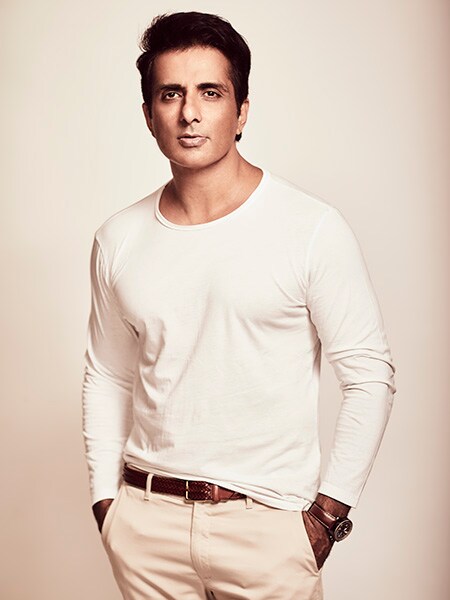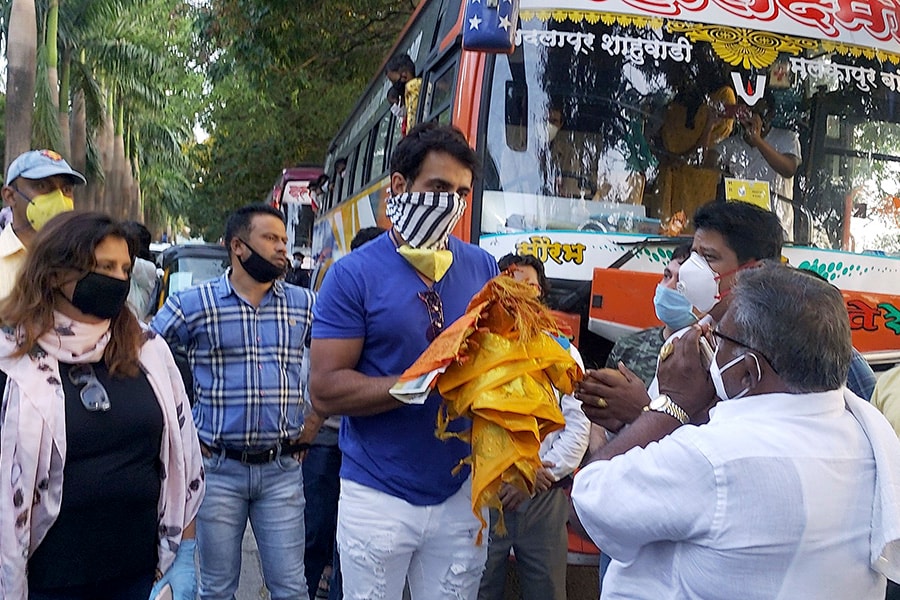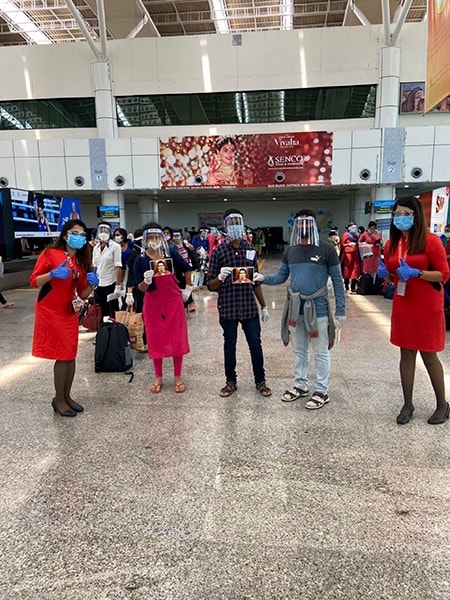
'I am here to win hearts, not for politics': Sonu Sood
Actor Sonu Sood on playing the best role of his life—helping migrants return home during the Covid-19 lockdown—and how he gained the strength to shoulder the responsibility
 Over a span of 100 days, Sonu Sood helped over 1.5 lakh people return home
Over a span of 100 days, Sonu Sood helped over 1.5 lakh people return home
Image: Omkar Chitnis
It is an overcast evening in August and even as he speaks to Forbes India, actor Sonu Sood can see about 20 migrants from Andhra Pradesh, Odisha, Karnataka and Assam standing outside his Mumbai residence. The actor has become a symbol of hope for the poor who want to return home ever since he started sending them back to their villages during the lockdowns at his own expense. Moved by the visuals of labourers walking thousands of kilometres in the absence of public transport, the 47-year-old decided to take on the responsibility. While the Centre and states were criticised for their inaction, Sood continues to get accolades for his work, which has now gone beyond borders. He, however, feels he’s only doing his job. “I believe I came to the city just to play this role,” he says. Edited excerpts from an interview:
Q. You’ve emerged as a messiah for migrants since the lockdowns. How did it all start?
The visuals of migrants walking on the roads—heading back to their homes—disturbed everyone. I was on the road, distributing food to them at that time. I spoke to a few migrants and asked them if I could send them back to their villages. They said it was not possible and requested me to just pack food for 10 days. Somehow I convinced them and spoke to a lot of authorities at different levels. I told myself that this is doable and I can make it happen. Within days, I got the first set of permissions to send 350 people to Karnataka. After they left, I pledged to help all migrants across the country—from Jammu & Kashmir to Kanyakumari. Over a span of 100 days, I helped more than 150,000 people return home. Currently, I am involved in the international evacuation of 12,500 people.
Q. When did you realise that the problem needed immediate intervention?
On the very first day. When I saw these people walking on the highways, I said this is not right. It’s going to lead to something serious. I thought it’s better to start as soon as possible… and in less than a week, word spread across the country. As migrants took shelter at dhabas and petrol pumps, I asked the owners to provide them with food. I said I will send money if needed, but don’t let them go till I make travel arrangements for them. I got in touch with various authorities in different states, and created a roadmap to send them back. There has been no looking back since then. People’s prayers and gratitude have kept Sood going. He has now also launched an app to help workers get jobs
People’s prayers and gratitude have kept Sood going. He has now also launched an app to help workers get jobs
Image: Fotocorp

 In May, the actor organised a flight from Kerala to Bhubaneswar to help workers get home
In May, the actor organised a flight from Kerala to Bhubaneswar to help workers get home



